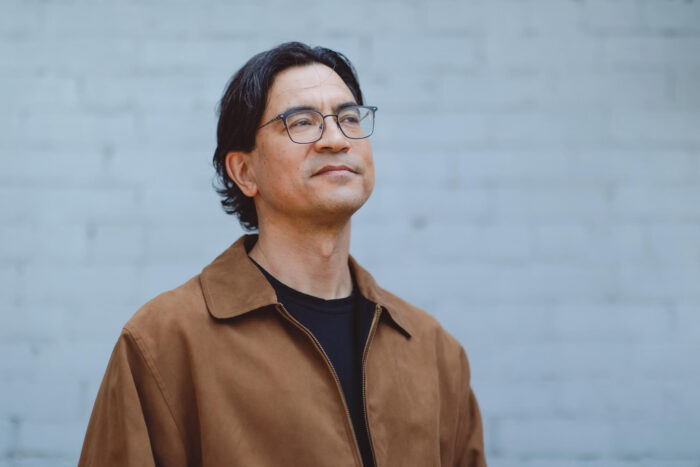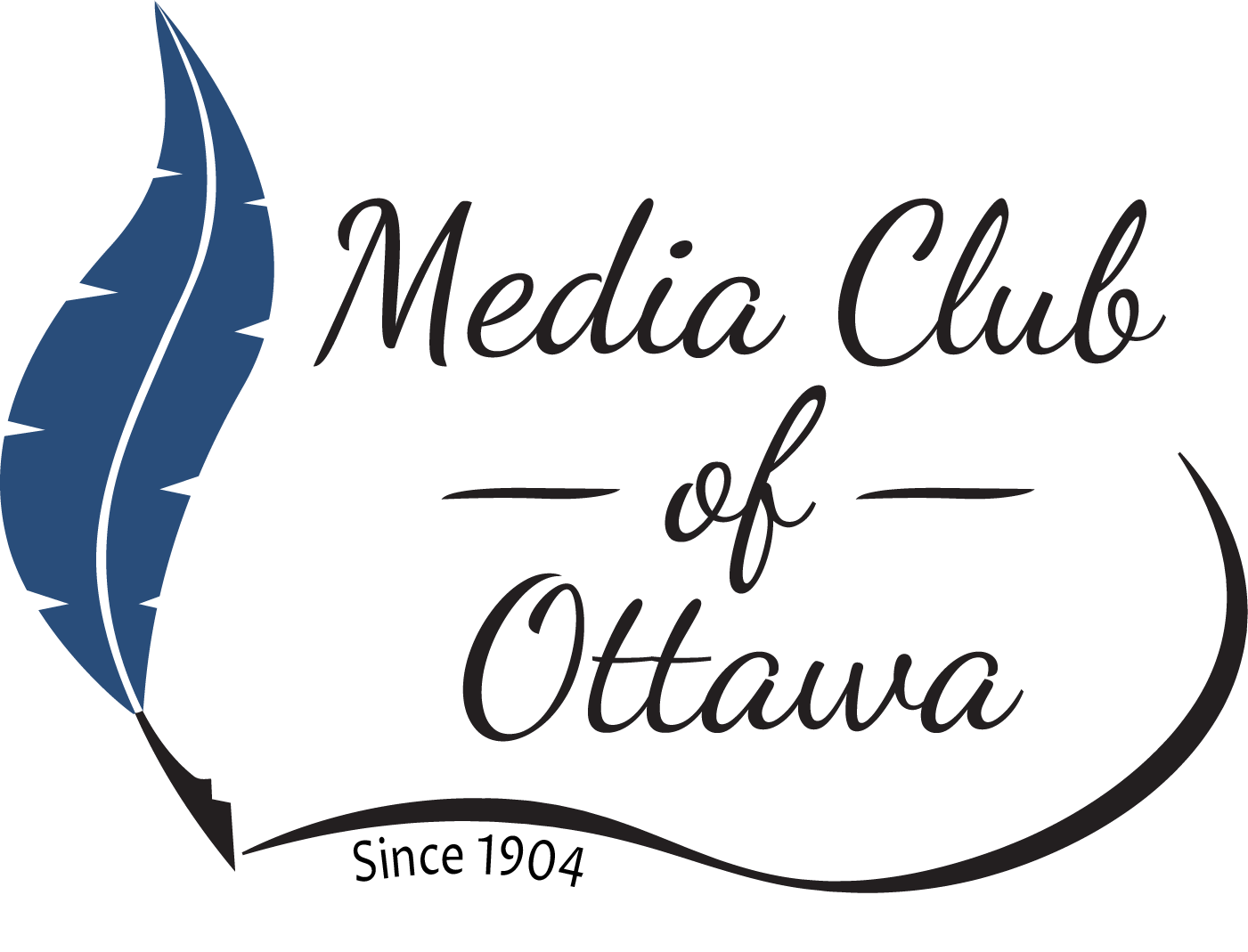
Our April Speaker – Duncan McCue
By Cynthia Cee
Duncan McCue was the guest speaker on April 23, 2024 for the Media Club of Ottawa meeting at the Lord Elgin Hotel.
He spoke about his book, Decolonizing Journalism: A Guide to Reporting in Indigenous Communities. He also addressed teaching an Indigenous Journalism course at Carleton University and how students are navigating the current journalistic climate.
Background
The former CBC, T.V. and radio journalist for over two decades and author of two books, is an Anishinaabe from the Chippewas of Georgina Island First Nation in Southern Ontario. He was raised in Peterborough by an Indigenous father and Scottish and German mother.
McCue was host of Hell of a Story on CBC Radio One, and KUPER ISLAND – an eight-part podcast on residential schools, also for CBC. He spent four years hosting CBC Radio One’s Cross Country Check Up and was a long standing correspondent for CBC’s Newscast The National.
McCue taught journalism at the University of British Columbia’s School of Journalism and Toronto Metropolitan University.. His current position at Carleton University is professor of Indigenous Journalism and he is also working on launching an Indigenous Journalism certificate program that he hopes will begin sometime this year, with Indigenous students being taught by Indigenous professors.
Duncan McCue has received many awards, including the New York Festival Radio RTNDA, and Jack Webster award. He was part of a CBC Aboriginal Investigation into missing and murdered Indigenous women that won numerous honours, including the Hillman Award for Investigative Journalism. In 2017 he received an Indspire Award for Public Service.
McCue’s Talk
He told us that at first he thought he would like to be a lawyer, but he enjoyed journalism as well so followed that interest instead. “Journalists have a passion for their jobs,” he noted.
McCue began his career by writing on what was happening in Indigenous communities, starting on T.V. then moving on to radio, doing more or less the same thing on both media. He liked the connection with people he got on radio. He also said that when he began working in newsrooms they were run in a more equitable way than now.
Because he wanted to pass on what he knew to the next generation 15 years ago, McCue began to teach journalism. “Less than one percent of students are indigenous even now,” he said. He has currently 9 students and only two are Indigenous. It’s important to figure out why there are so few.
McCue believes that for financial and cultural reasons Indigenous students potentially interested in journalism aren’t coming into the city. But if that’s the case, he suggested it would be good to set up a community radio station or a local podcast where they lived. “We should go to them and not vice versa,” he suggested. “Also, the courses should be taught online. You have to be an entrepreneur to be a journalist now,” he said. “Regular jobs are rare. Journalists have to be present on radio, online, T.V. social media and podcasts.”
How journalists get paid for what they do is a challenge too. They have to market themselves, get a business plan and learn to do it all on their own. He wants to teach the process of taking an idea and making a story out of it by finding people to talk to and to research. He wants to teach students how to go out and “pound the pavement”.
Questions asked during the talk included:
Q. How do students envision themselves as journalists today? Do they see themselves as the next Peter Mansbridge?”
A. The younger generation consumes news quite differently. “Most don’t even know who Peter Mansbridge is,” McCue noted. “They don’t know the 6:00 News as we do. They want to change the world and see justice and tell stories. The students haven’t changed,” he continued, “but the format has and the business model has changed. We have to figure it out and they will too.”
He finished by saying “The kids are creative. There really is no better time to be a journalist.” He might also have added – “or a student of Indigenous journalism.”
